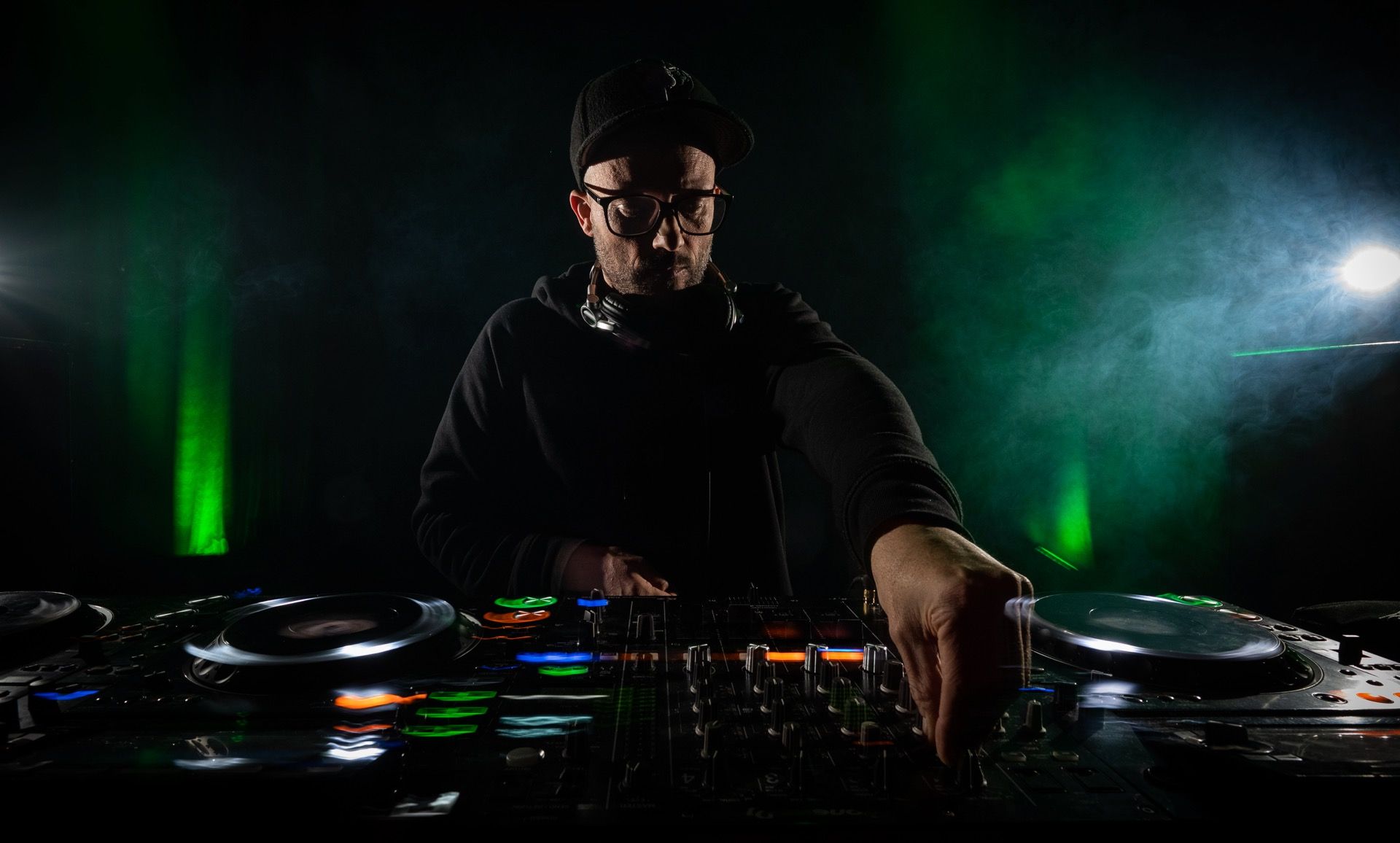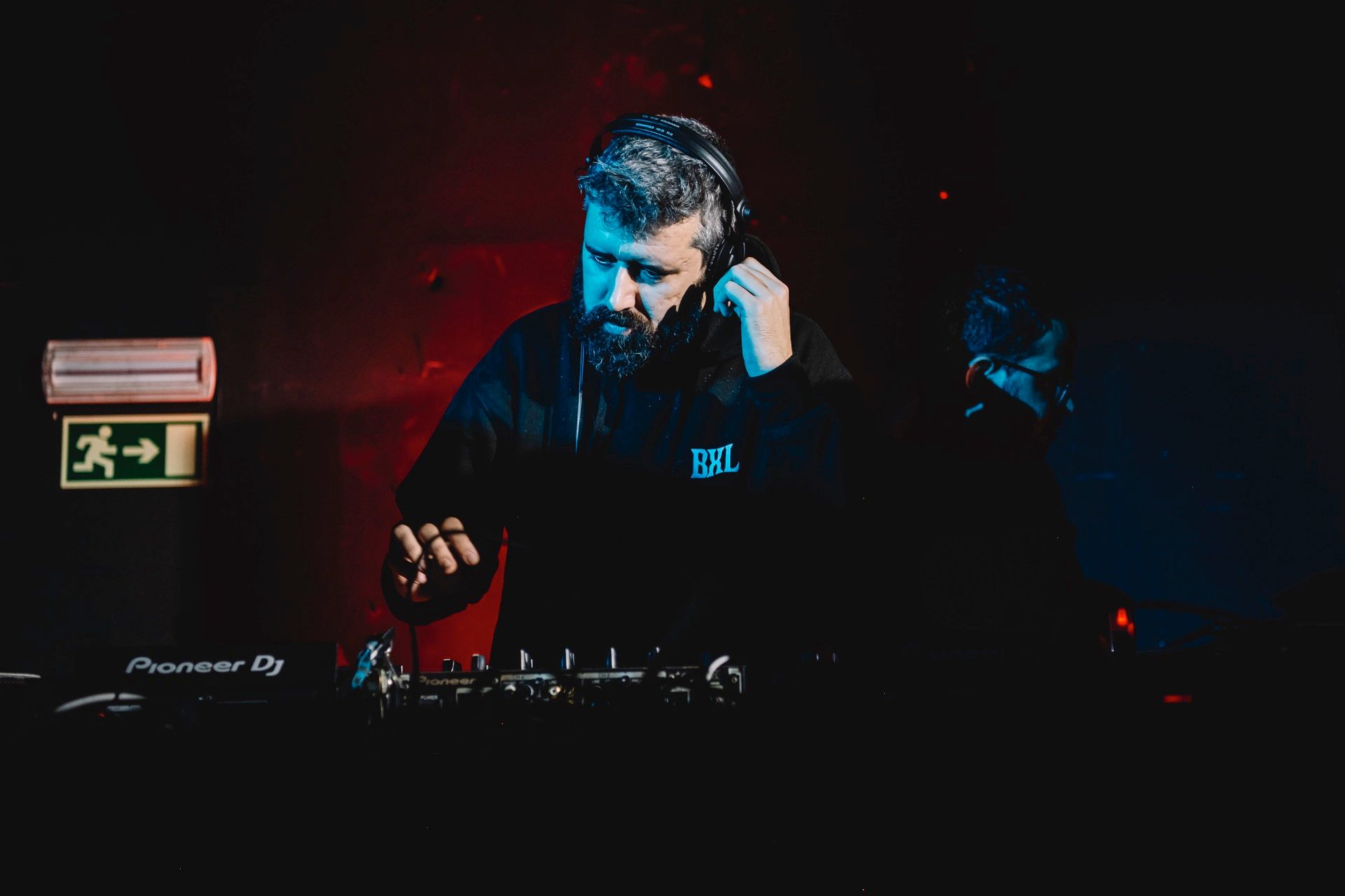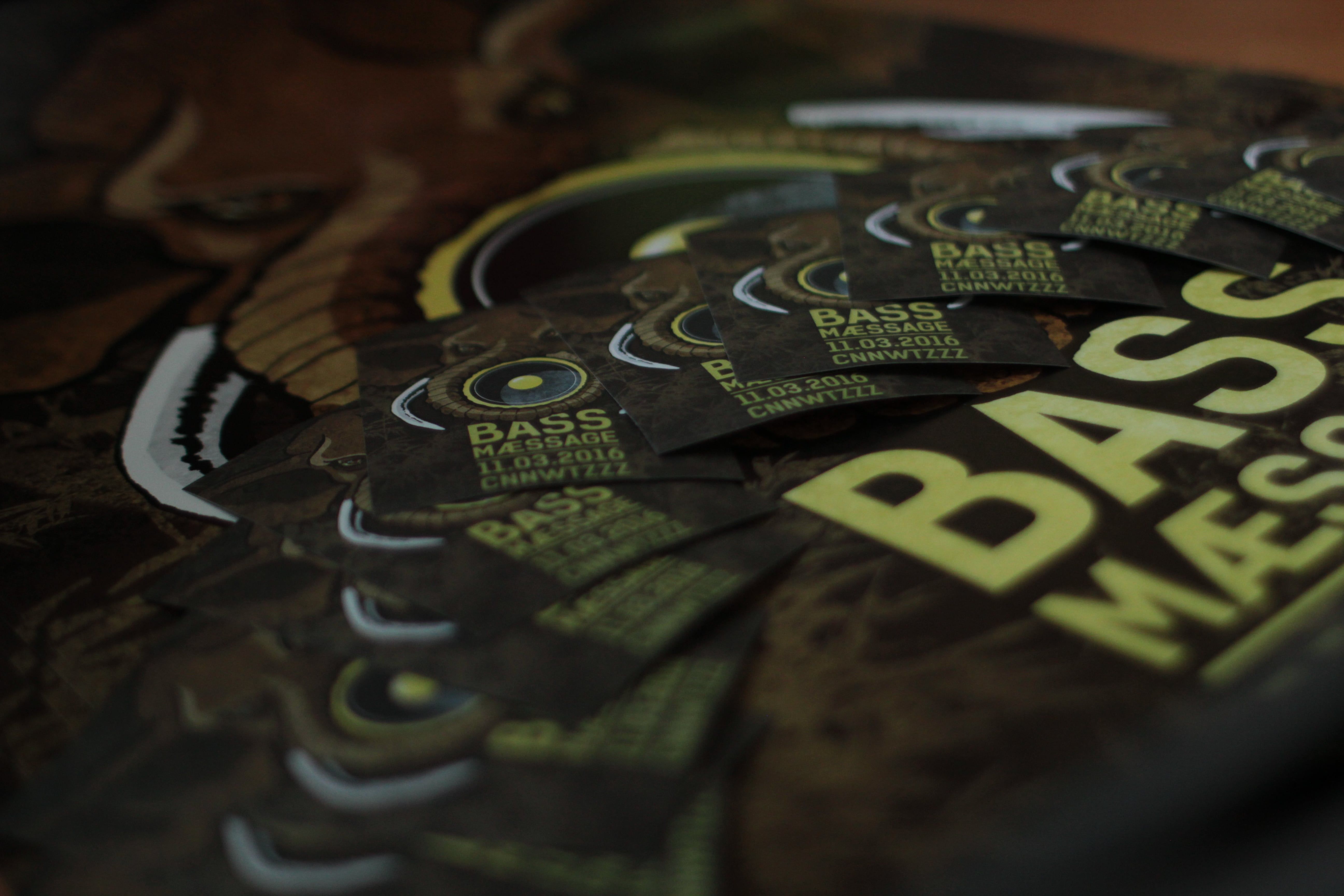Anastasia Rydlevskaya and her creative queendom
"It seems that almost everyone has something they want to share".
Anastasia Rydlevskaya has been an artist for many years. With exhibitions in Belarus, Poland, Lithuania, France and Spain as a visual artist under her belt, she started a musical career a few years ago. She also has a literary degree, which must definitely help. We sat down with Anastasia to chat about her life, music and art.
You can listen to the full audio version of the interview in Belarusian and Russian as part of the Radio Plato Editorial Podcast:
<iframe width="100%" height="166" scrolling="no" frameborder="no" allow="autoplay" src="https://w.soundcloud.com/player/?url=https%3A//api.soundcloud.com/tracks/1944592463&color=%23ff5500&auto_play=false&hide_related=false&show_comments=true&show_user=true&show_reposts=false&show_teaser=true"></iframe><div style="font-size: 10px; color: #cccccc;line-break: anywhere;word-break: normal;overflow: hidden;white-space: nowrap;text-overflow: ellipsis; font-family: Interstate,Lucida Grande,Lucida Sans Unicode,Lucida Sans,Garuda,Verdana,Tahoma,sans-serif;font-weight: 100;"><a href="https://soundcloud.com/radioplato" title="Radio Plato" target="_blank" style="color: #cccccc; text-decoration: none;">Radio Plato</a> · <a href="https://soundcloud.com/radioplato/radio-plato-editorial-podcast-123-w-anastasia-rydlevskaya" title="Radio Plato - Editorial Podcast #123 w/ Anastasia Rydlevskaya" target="_blank" style="color: #cccccc; text-decoration: none;">Radio Plato - Editorial Podcast #123 w/ Anastasia Rydlevskaya</a></div><h2>Emigration, summer house and art</h2>– Tell us more about your life journey.
– I lived in the States until I was eight, the most formative years for one's worldview. I have lived in Cincinnati, Ohio and Covington, Kentucky with my parents, which is where I absorbed the American culture, with all of its traditions, holidays etc. Spooky season is still my favorite. I've had a good childhood. Although we were lower-middle class and lived in an apartment, we had a pool and my school was full of fun creative activities. For instance, we had a big Van Gogh project in school, or an entire frog month, when we would draw, make sculptures of and write essays about the amphibians – all in a regular public school.
When we first moved to Belarus I was experiencing a bit of a culture shock. A few of the things I remember from my earliest days in Belarus are the bleak apartment blocks, feeling alienated in school and being bullied for being "an American". Because of the language barrier, they placed me in a preparatory class, and I felt like an outsider. Our family's summer house became my refuge in those early days. It was the place I felt free to do what I loved: write music, draw, train my left hand in order to become ambidextrous. My parents have been incredibly supportive of all my hobbies and would send me to courses and classes for anything I wanted. Although I saw it as self-isolating at the time, I have come to appreciate how much it enriched my life. There was even a period of several months during the swine flu epidemic in 2009 when my parents would let me stay at the summer house for months where I would do my thing. You could call it rough living, no amenities, but it was my creative kingdom.
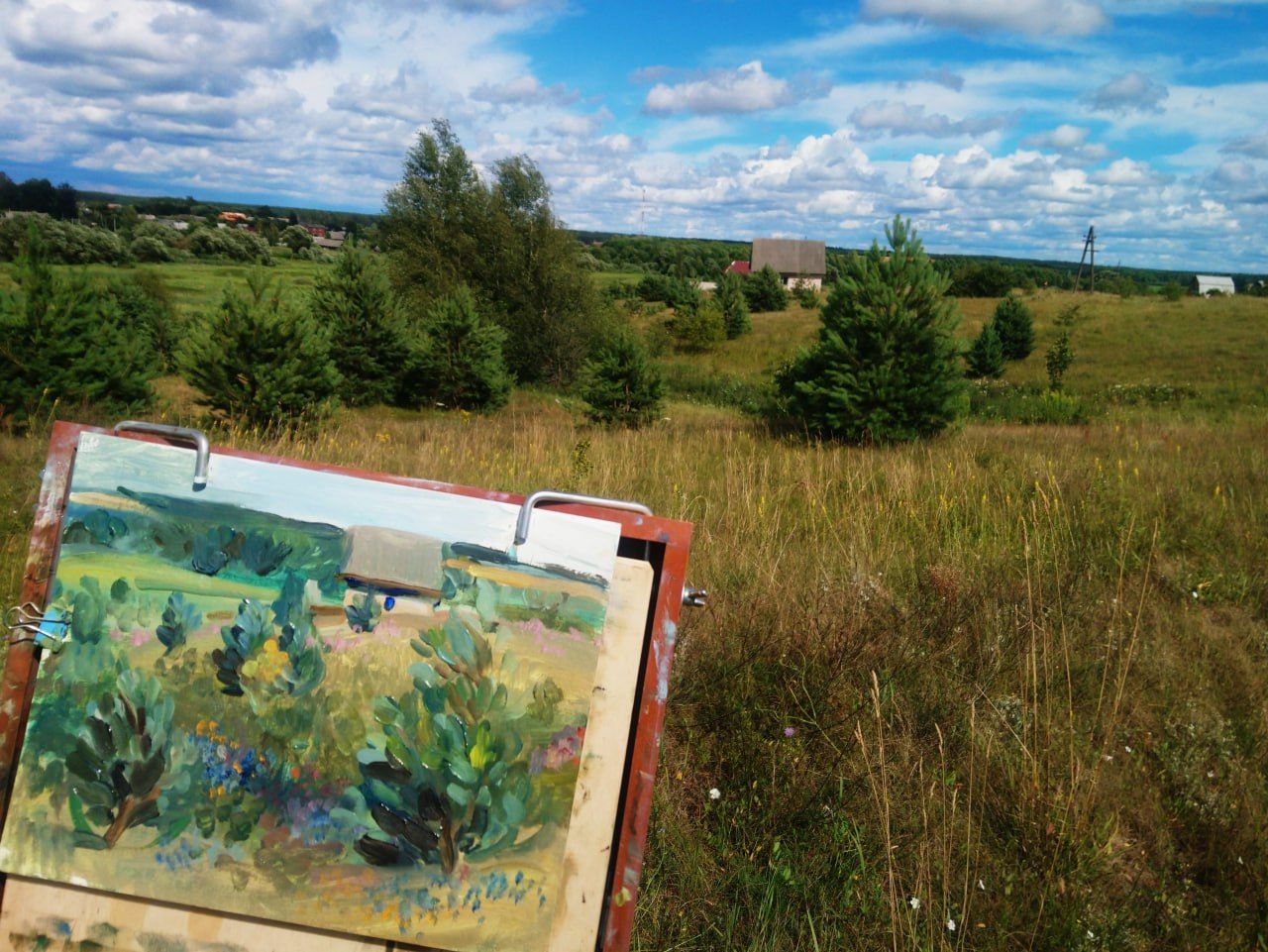
I would also later appreciate how tough my parents' life was in America. They would work a few jobs, gruelling hours. They had to return to Belarus when my father lost his job and the work visa. Upon returning, things were looking up, we even bought a summer house, but I was having my struggles. I was mad at them for moving. My dream at the time was to return to Cincinnati once I am of age at any cost, because that's the place I thought of as home.
One of my first conscious memories is about leaving for America. When I was two, we were flying out of Moscow and it was snowing, although it was May. I always thought that's a dream I once had, but turns out it's actually true. I spoke to my mother about this recently and she confirmed the weather anomaly indeed took place on that day. I remember not understanding why I had to be transplanted into a totally different place. I thought of myself as an American, I thought in English, and I would never listen to any music in Russian. Until the day I heard Verka Serduchka, that is.
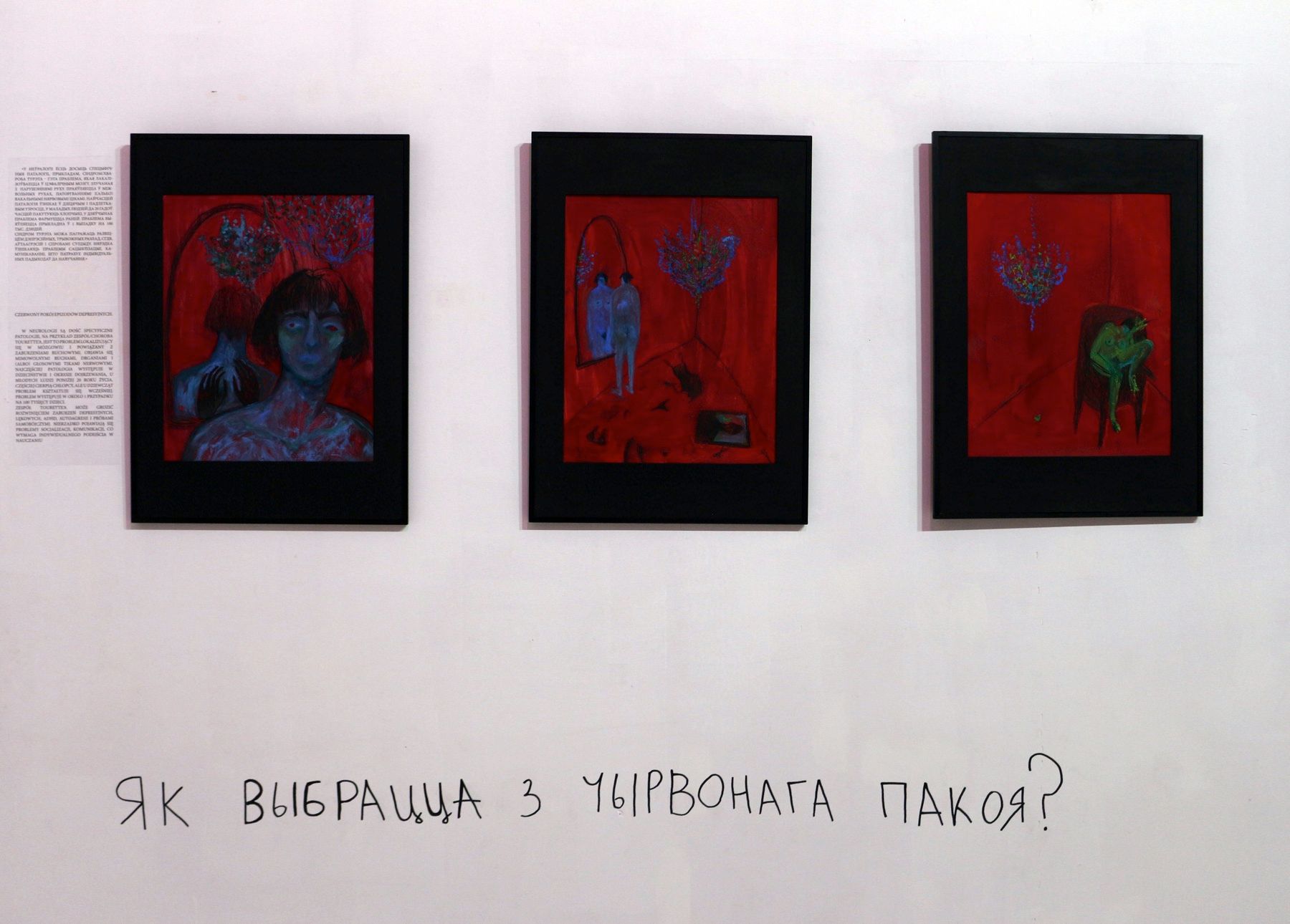
– So how did you start as an artist? When did you first feel the creative impulses?
– I had this irresistible urge to create since childhood. And it felt as natural as breathing. My whole family was creative. My mother sang and wrote songs, my father played the guitar, and my brother wanted to become a painter. I was also sure I would be an artist, and I saw having a profession as a secondary thing. I had phases when I wanted to become a ballerina or a lawyer, but at the core of it all I always wanted to be an artist. Towards my teenage years I lost faith in myself due to my insecurities, but over time, that sense of being an artist returned. Music and drawing have always been inseparable for me, as just different mediums for expressing emotions. I would say, I got rid of my teenage insecurities for good only after I moved out of Belarus.
I am overall a very socially awkward person who would mull over every word I said to somebody that day, worrying about what people thought. I once took up private painting classes, but I would feel so ashamed of even going to the arts supply store, thinking that everybody in there knew that I am no painter, that I am an impostor! I would expect a particular reaction to my art from people, and when I was not getting in I didn't know how to process that. That's why eyes are one of the recurring motifs in my paintings – as a symbol of reaching out for a safe contact, which is crucial for somebody as anxious as myself.
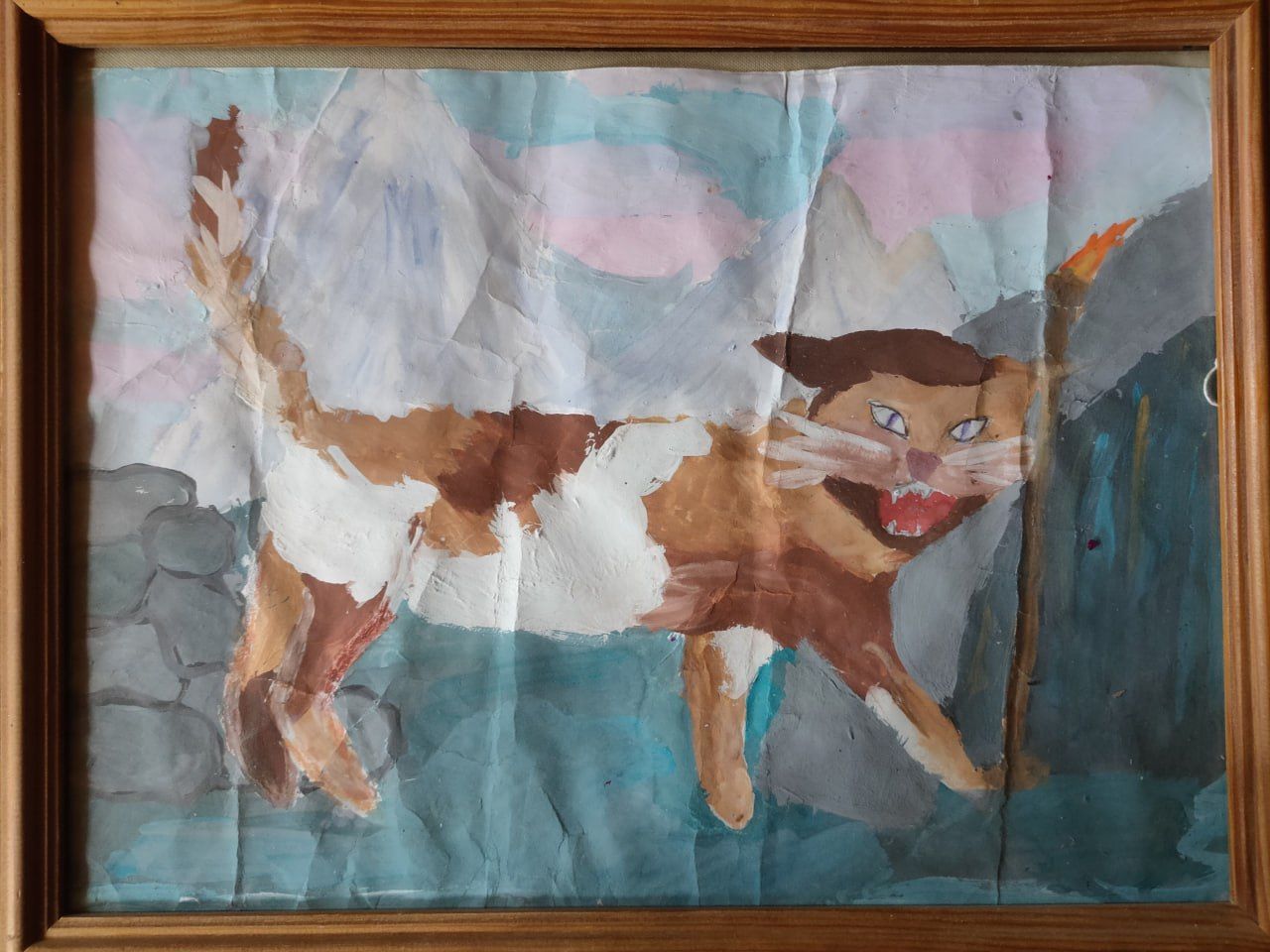
I was recently looking through some of my childhood drawings and I was shocked how many themes are still with me from those days, I’m circling back to them on a new level. Portraits, self-portraits, animals and nature are the things that I drew since childhood and to this day. I try to be as authentic as I can with my paintings and draw from my actual experience. I've been feeling more free and less fearful since leaving Belarus. Now I feel free to explore such themes as embodiment, non-binary issues or the shadow without fearing judgment or second-guessing myself, as I was prone to do in Belarus.
– How do you come up with ideas?
– In different ways, but the core is some kind of lived experience, which can be either real or imagined. I have had a blurry line between reality and fantasy since childhood. I used to have imaginary friends, who I lived out entire story-lines with and this left a mark on me: if I feel or imagine something, it can become the foundation for my next painting. There is always a sensory image at the core of it. It helps me dive into the creative realm, and from that thread, the other images are strung together. All I need is peace and quiet. It really feels like fishing. You cast a line, not knowing what you are feeling right now, and in response you fish out the images that help you answer that. Then, this image guides you on its own, leading you to its best depiction. You have to trust your instincts at this stage and not over-analyze it, or it will all crumble.
I used to think that you need some inspiration in order to end up in this creative flow state. But, as it turns out, with enough practice, you can stay in the creative flow all the time and just live it. Artistic analysis of what has been fished out of the creative flow comes at a later stage, which I am well-equipped for thanks to my literary degree. That is, in a nutshell, how I come up with stories and ideas for my art. It’s a never-ending story, the story of my life. It turned out rather recently that I am able to apply the same type of process to making music.
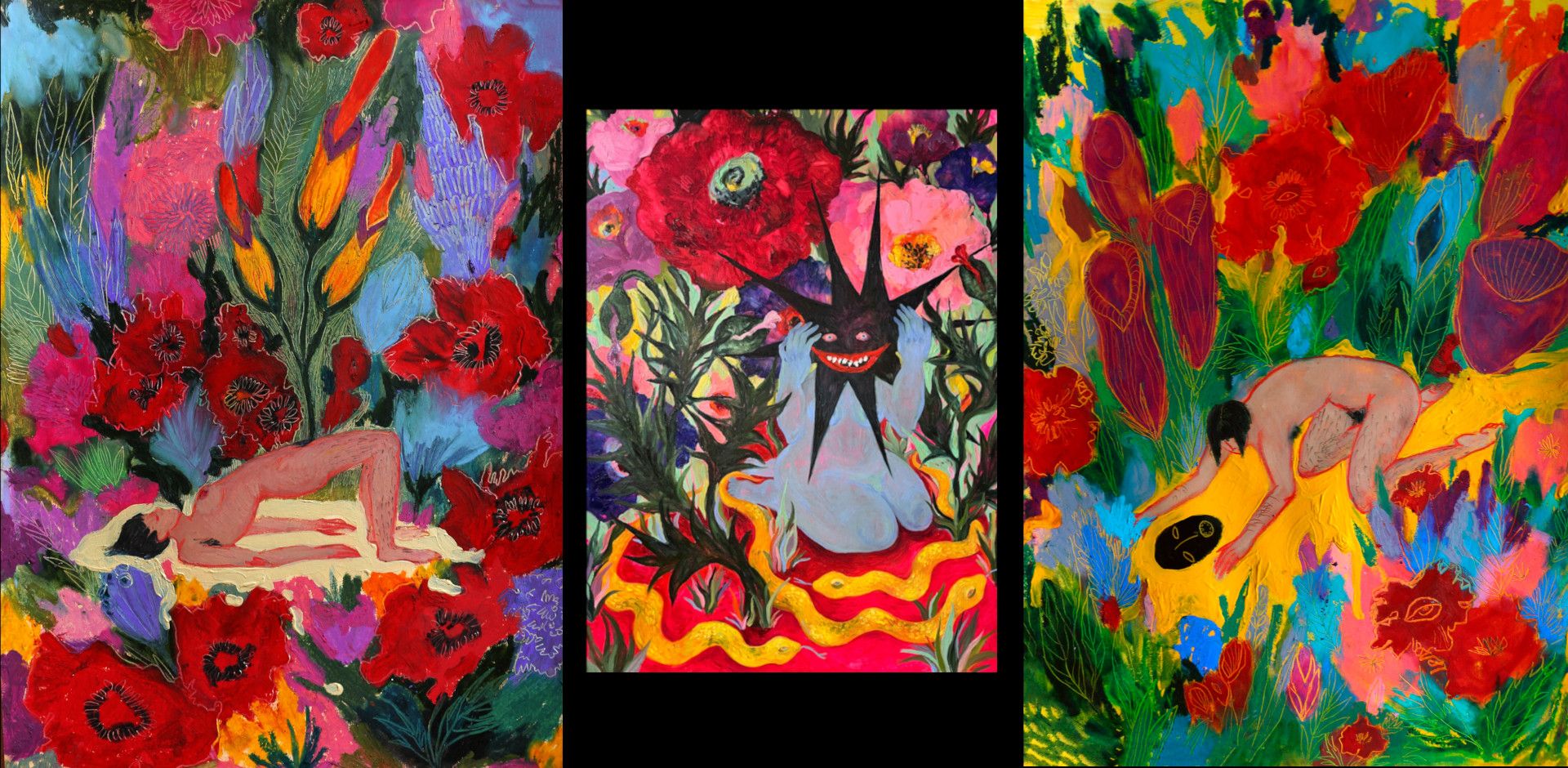
– Why did you study literature?
– Because that was the only university department with no math. I was aiming for the Academy of Arts, but I lacked confidence so much that I never even considered getting a scholarship. And with my parents' financial situation at the time, I wouldn't be able to afford tuition. So I started looking for other higher education options with no math. I was so bad at it, I was basically counting on fingers.
That's how I ended up in the literature department, without realizing I would be faced with a list of 200 books to read each year. The first few years I actually hated it. I thought I lost my artist cred because I went to study literature. But it all changed once I graduated and was invited to work on faculty. World literature department (at BSU) and all of the professors had a profound impact on me and it later turned out that I actually love teaching.
All of that despite my Tourette syndrom, which makes it really hard to read or write or even concentrate. The literature department became a real treasure in my life; it taught me how to create artistic structures and recognize them. I owe my ability to weave an artistic multiverse to the years spent studying literature.
– So did you eventually make peace with Tourette?
– You don't make peace with it, Tourette doesn't care. It's just that my desire to graduate was stronger. I've been living with Tourette since I was five. I’ve gotten used to it, but I still get annoyed when it flares up, especially once you start to get muscle spasms. My symptoms started diminishing in high school. I took antipsychotics for a whole year, which helped me read, but it was still a tough battle. There is no peace with Tourette, I still hate it.
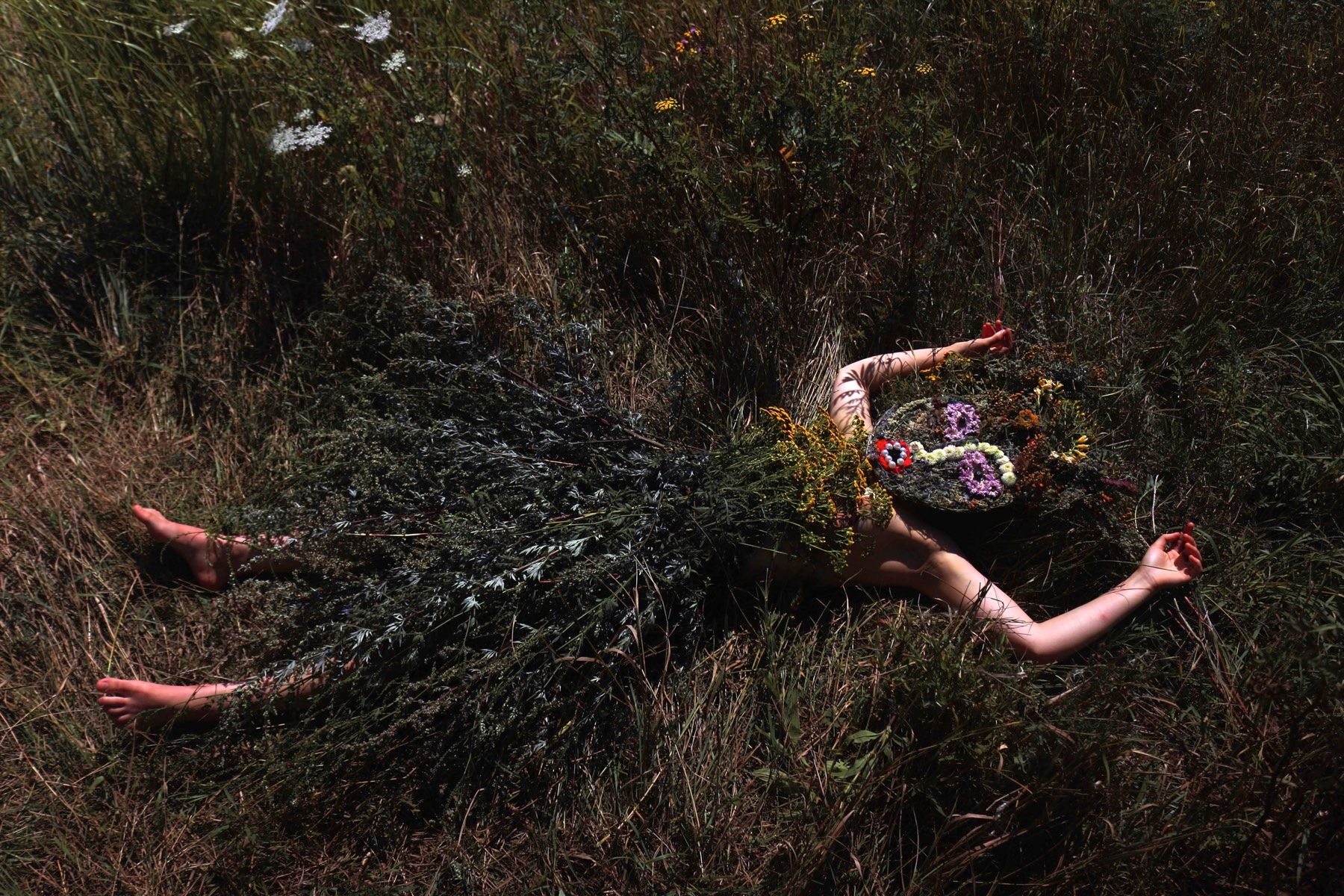
– What would your advice be for people going through this struggle, and especially for parents of kids with Tourette?
– Don't treat the children as if they are bad or weird, and don't pity them. Pity is the worst. I remember having vocal tics and how people would stare at me in public transport. A kid with Tourette is already sensitive and emotional, so avoid shouting at them or at each other. It only makes things worse. It's important to accept the situation without pity or shame. As a child, I spent a lot of time in the hospital, but no one told me about my diagnosis until I turned 21. Doctors would just say I was being very emotional. I was accepted when I was acting up and it helped.
– You touch on that in your work. Have you been approached by people who told you it helped them through their mental health struggles?
– I am bipolar, and I do have those periods, when I deeply regret sharing so much. But then I recall how people thank me, saying my songs or paintings helped them. It's important to know you are not alone and your work helps other people.
I am not an activist and don't like confrontation, but I have to talk about mental health and promote destigmatization through my work. I am used to people looking at me weird when I would mention my issues. As if I am becoming less of a person for them when they learn that about me. Once I tell them I am bipolar, it's definitely gonna come up eventually that I'm "probably having an episode right now". I want the mental health discourse normalized, without any dehumanization whatsoever.
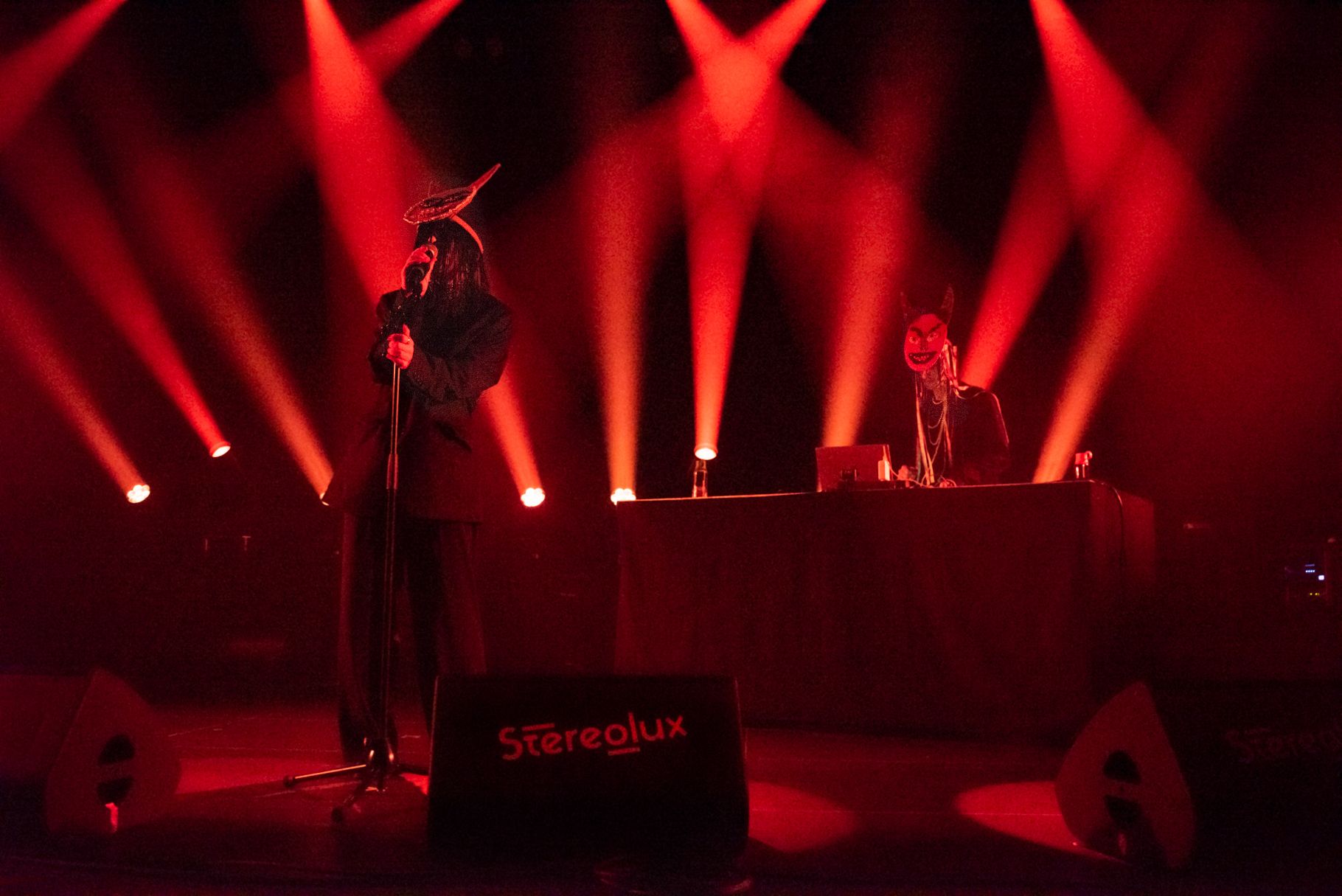
– Would you say that a lot has been done in recent years for destigmatization of mental health issues?
– Yes, when I was little, it wasn't considered normal in Belarus to talk about having been in a psychiatric hospital. Now, sharing my experience with bipolar disorder, I feel comfortable, even if someone finds it strange. I read the comments under my interviews, where people suggested the electric chair and similar things, and I realize that prejudice still exists. But it has become easier to talk about it, and people often share their own struggles when they hear it. It seems that almost everyone has something they want to share.
<h2>Panthers and jaguars – Rydlevskaya's music worlds</h2>– Let’s talk about the musical aspect of your creativity, which often surprises people who know you as a visual artist first. How did your musical project start and how is it developing?
– I started getting into music as a child when my dad taught me how to play the piano. Instead of playing from sheet music, I would write my own melodies, imagining them as stories. It seems like what they call synesthesia. Each note would evoke a visual image for me, and I vividly remember the stories behind my songs about panthers with jaguars, or about a grandfather crying over a dandelion as raindrops fall on it, even though the songs themselves, their melodies are long forgotten. However, due to overwhelming childish ambitions and a lack of support, I gave up music and forbade myself from pursuing it at one point.
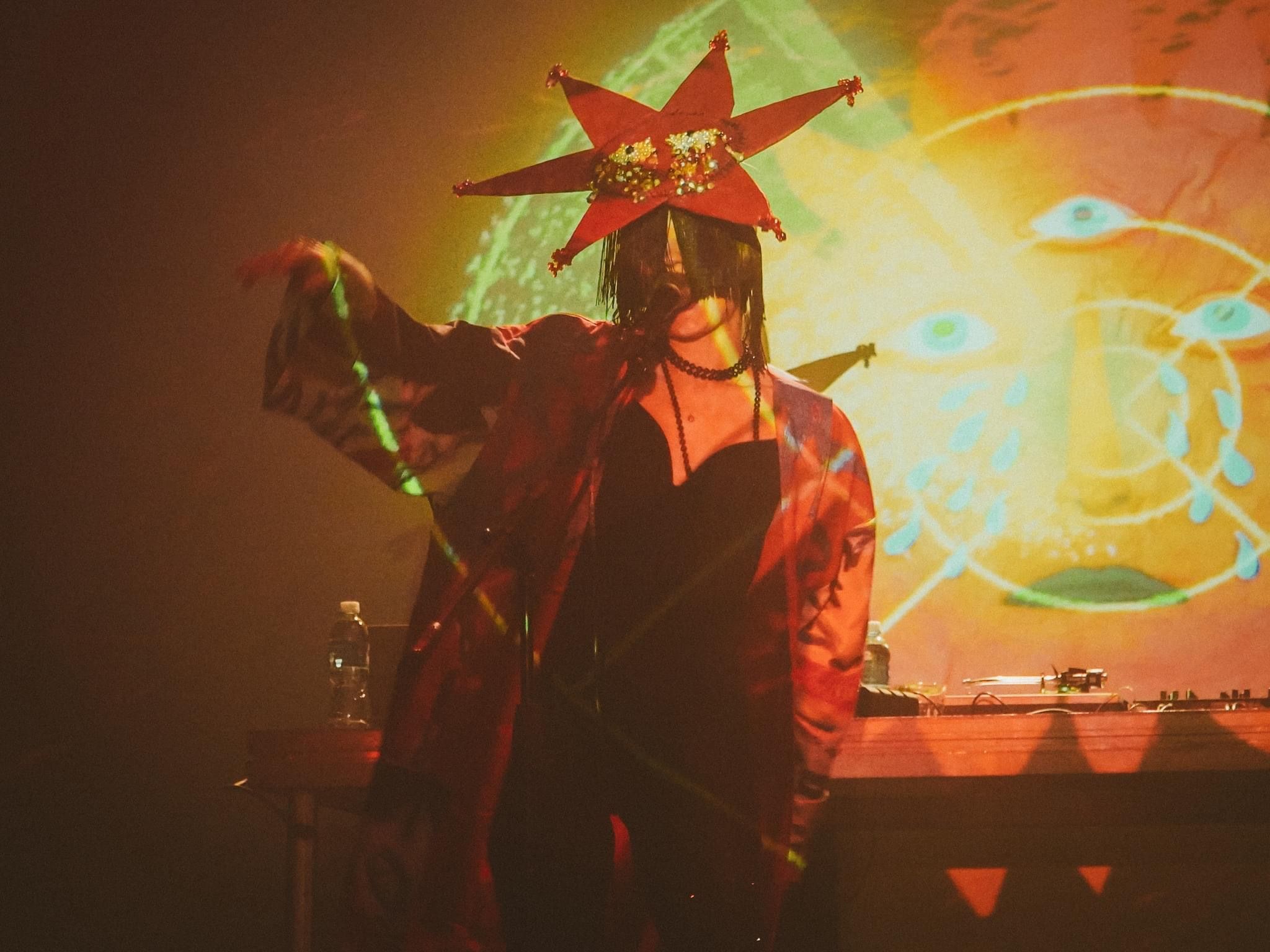
Self-esteem issues were bringing me down and I really lacked someone who believed in me when I was trying to create. It all changed in late 2022, when my friend KorneJ supported me and taught me how to use Ableton, gave me a sound card and a microphone. That inspired me a lot to work on music, and now I see music as another tool for expressing my creative energy, just like painting.
Then KorneJ recommended an Ableton course by Vova Patapenka at Midi.by. I started writing songs obsessively during Vova's lessons, and before I knew it, I had written enough for an entire album. Then I started feeling depressed, and every non-positive comment affected me deeply. It took a lot of effort for me to realize that I wasn't writing music for praise, but rather for myself, creating songs that I would enjoy.
<iframe width="560" height="500" src="https://www.youtube.com/embed/C4dmsoWmReY?si=ZWYaOTKV6TzA9aVJ" title="YouTube video player" frameborder="0" allow="accelerometer; autoplay; clipboard-write; encrypted-media; gyroscope; picture-in-picture; web-share" referrerpolicy="strict-origin-when-cross-origin" allowfullscreen></iframe>– How has your music been evolving stylistically?
– My music is going through transformations as I become more confident and better understand who I am as a person. I've been realizing lately how much my fears and desire to fit in have hindered me from expressing myself before. I am gradually shedding these limitations, and my music is becoming freer.
My first album was created on a computer that just couldn't handle the VST synths, so the sound was very minimalistic, which I actually love, and I wouldn't change a single note on that album now. An important breakthrough in my music happened thanks to photographer Alexander Vasukovich. He supported me during a tough time when my computer broke, and I was really upset that I couldn't work on my music. I met him during a concert, and upon hearing about my problems, he gave me his MacBook. Now I have a new computer that allows me to do much more than before, and the new opportunities just blow my mind and fill me with tremendous excitement!
I want to construct the worlds that the listener would fall into, so that music leads on an introspective journey. For example, I have a ten-minute song called Mugwort (Palyn) which was created as an accompaniment for an exhibition, designed to fill the space and create a new reality. Each album cover and each song have meaning and are often interconnected. For example, the new songs Limerence and Petit Oiseux share the same phrase uttered in different languages with different meanings: one explores the light side, while the other delves into the dark. This is thanks to my literary degree; without it, I would have never been able to consciously create worlds of my own.
<iframe style="border-radius:12px" src="https://open.spotify.com/embed/album/6QWQzBDHnRCBo8OsGERloJ?utm_source=generator" width="100%" height="352" frameBorder="0" allowfullscreen="" allow="autoplay; clipboard-write; encrypted-media; fullscreen; picture-in-picture" loading="lazy"></iframe><h2>Art, relatives and other projects</h2>– Do personal relationships play an important role in your art?
– The song Mugwort (Palyn) is about nostalgia for my parents and our summer house, about being unable to return, since I haven’t seen them in person in three years. They can’t come to Poland, where I live now, and this situation is becoming increasingly unbearable for me. I'm blocking these thoughts out, it's hard for me to see them age. I used to love receiving short video messages from them on Telegram, now it triggers me, because it makes me realize that time is passing.
And I am very grateful to my partner Aleksei, who has basically dedicated himself to supporting me. He helps me with everyday errands, which allows me to concentrate on my creative work and be a full-time artist with the five hours of peace and quiet per day that I need to keep creating. I'm a highly sensitive, vulnerable person who needs support; otherwise, I wouldn't be able to cope. Without Aleksei I wouldn't be creating, I would just be sitting and crying, not knowing how to deal with all the everyday challenges.
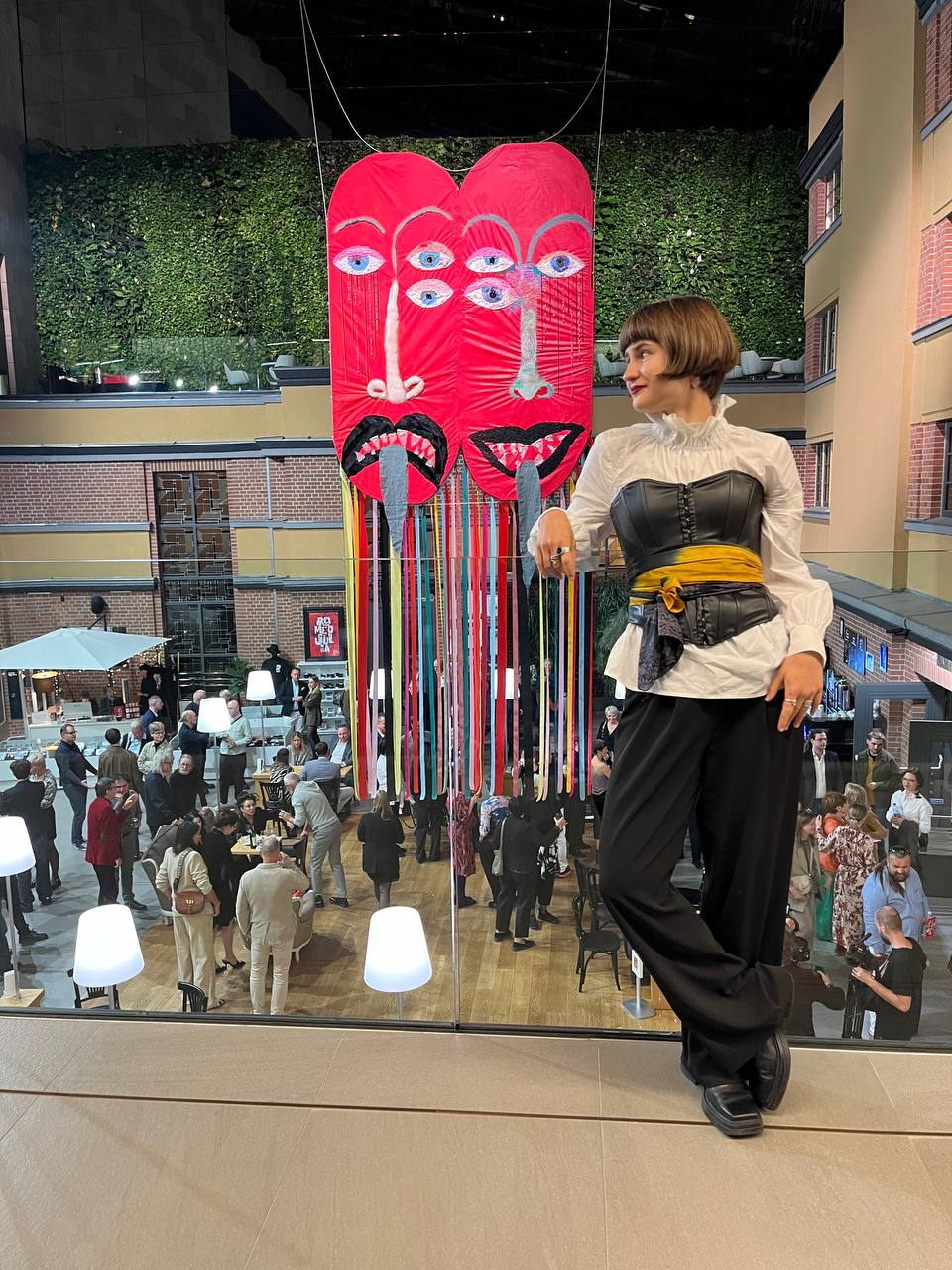
– In addition to your own projects, you participate in many others, such as the recent premiere of Romeo and Juliet play at the Capitol Theatre in Wroclaw, for which you created enormous mask sculptures. Tell us more about it.
– I was invited to take part in this project by the art institution Krupa Art Foundation. It was a real miracle that I got offered that project! I'm highly anxious about making a living as a full-time artist, but lately I've been getting fed up with it, and a while ago I decided to relax and let myself just work on what I love. And that was exactly the moment when I got an offer to do this 10-meter high sculpture for the Capitol Theater. I made a mask 3,70 meters tall, with 7 meter ribbons.
Projects like this are an artist's dream, but you can't do them yourself without outside financing. My materials got paid for, but I was given just two and a half weeks to complete the project. All my Gdańsk friends, as well as Aleksei, helped me work on it; Aleksei even learned sewing and embroidering. This project gave me a sense of pure happiness: I was doing what I love, and it was valued by others.
I was inspired by the fact that a Polish theater chose me specifically, while they have a lot of great Polish artists to choose from. The theater I worked for turned out to have an incredibly creative and fun environment. It's an amazing feeling to be part of such a big and remarkable project. And the play itself moved me deeply. I was thrilled to be engaged in something meaningful that brought joy.
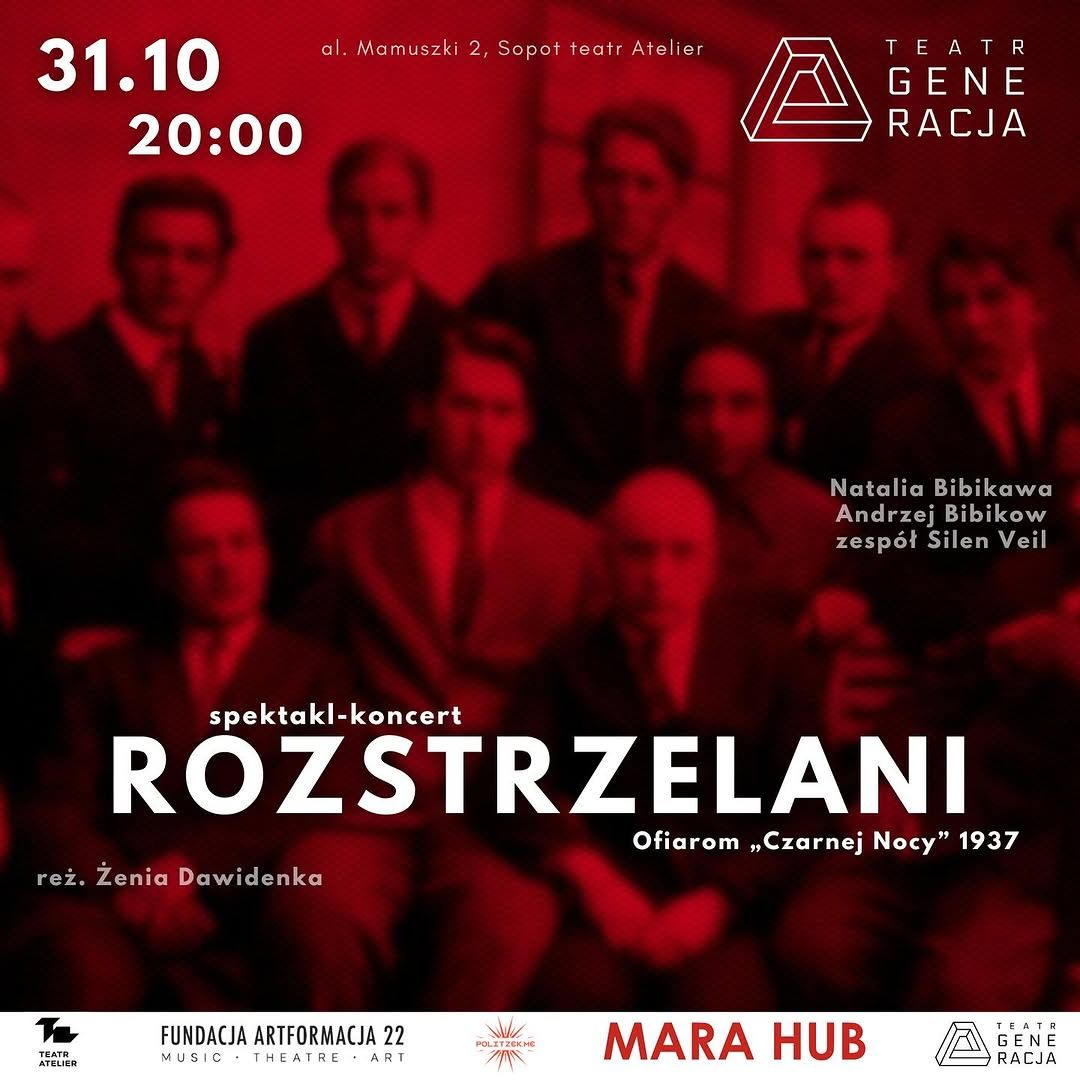
– Another project you take part in is Rozstrzelani – a play about executed Belarusian poets in 1937, created by Żenia Dawidenka, which premiered on October 31st. You are the set designer on it. Tell us more about working on it.
– First of all, working with Żenia is always pure joy. We have instant rapport and a fantastic collaborative spirit between us. I'm really happy she invited me back to work on this project.
We had done something similar last year, but the project grew bigger since then and it will be shown on a big theater stage. My role was to draw the poets' portraits, the places they lived and metaphoric illustrations of their stories, that Aliaksandra Babkova would then animate. As heavy as this project about one of the most tragic chapters in Belarusian history is, it does offer hope that the seeds of their creativity continue to sprout to this day, as we share their stories, read their poetry, and keep creating while drawing inspiration from them.
This year, we staged this play in Sopot at a well-known Polish Teatr Generacja, which attracted not only Belarusians but also local Polish audiences. It's very important to foster cultural integration and exchange with projects like this.
<iframe width="560" height="500" src="https://www.youtube.com/embed/OQ-HNwZdSmw?si=xgbPMGP4PTPEOp40" title="YouTube video player" frameborder="0" allow="accelerometer; autoplay; clipboard-write; encrypted-media; gyroscope; picture-in-picture; web-share" referrerpolicy="strict-origin-when-cross-origin" allowfullscreen></iframe>– How do you manage all these projects?
– I often feel that I'm hardly managing it at all, which only adds to my panic. My internal clock keeps saying "time's running out, hurry up and work," and every year, when I look back, I feel a sense of dread. This year, for instance, I've only painted ten oil paintings, and it feels like an alarmingly small number.
The fear of not having done enough pushes me to work, and I really struggle to relax and feel guilty when I'm not doing anything. The next day after I had surgery, I went to a video shoot. Even during our seaside vacation with Aleksei, I couldn't just chill; I ended up writing the song when I should have been relaxing.
The health got the better of me this year. I had many more plans: I wanted to make a new album and a Tarot cards collection, but I feel like I'm not on schedule. That's why I'm surprised and flattered to hear you call me productive. I'll make a note of that, as that's not how I view myself.
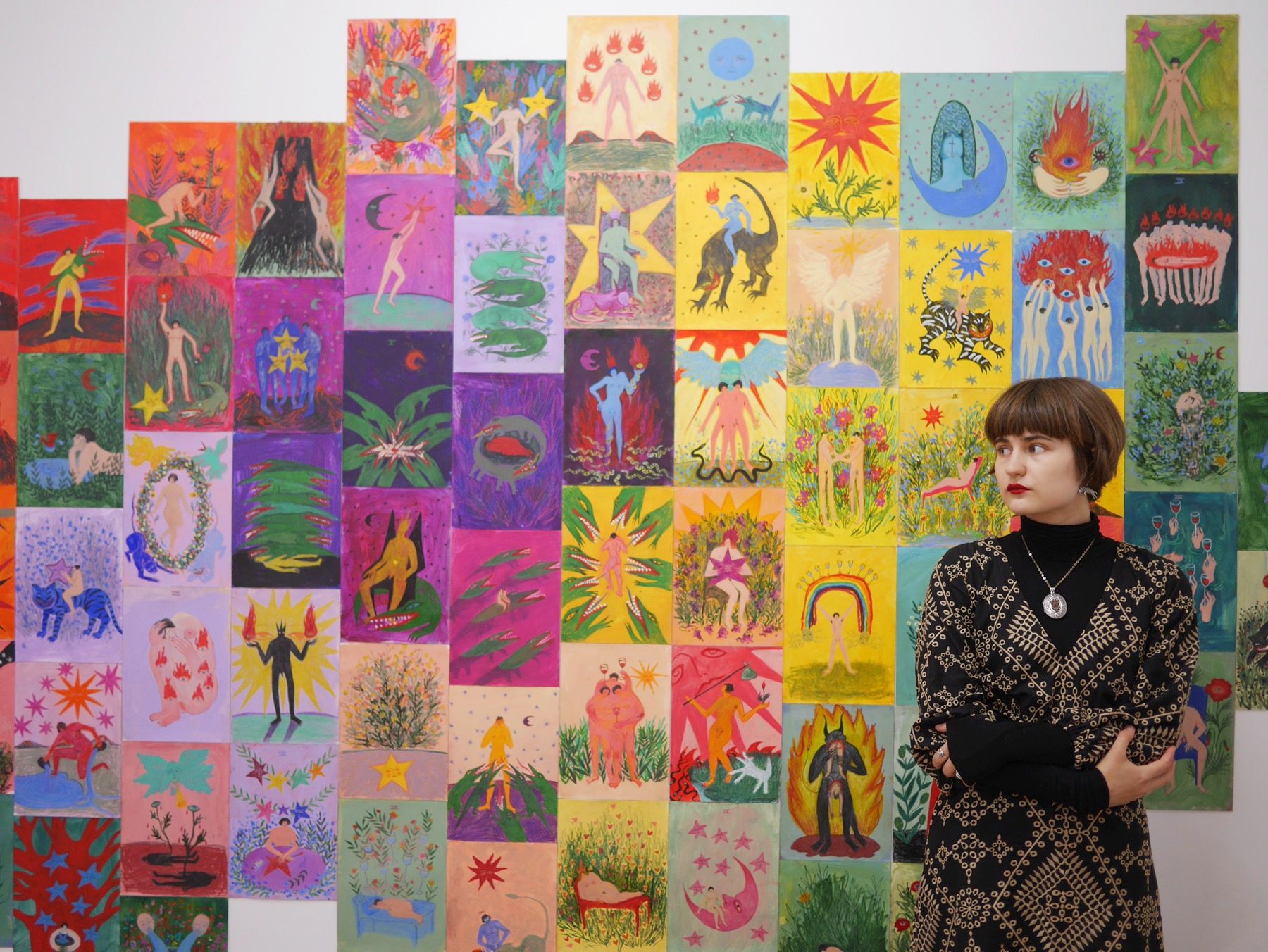
Photos by Rina Trohi, Żenia Dawidenka, crysinoye, Daria Szczygieł, Roger Kustner for Stereolux, Alexei and Anastasia Rydlevskaya
